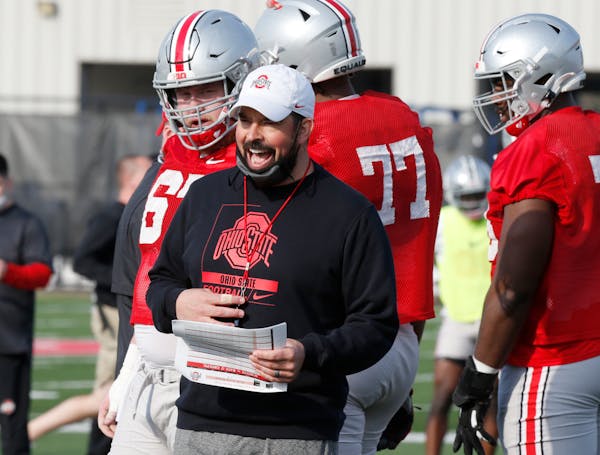They attached labels to different parts of the path they took to P.J. Fleck's fifth season in Dinkytown.
Those early years had unique monikers. The Dig. The Dirty Waters. The Muck. And, yes, the head coach encountered some external lampooning when he categorized his first season in Minnesota as Year Zero.
The markers along the way have offered lessons in the extremes. There was Maryland in 2018, Penn State in '19 and the pandemic of '20.
The Gophers claimed the title of "youngest team in college football" shortly into Fleck's tenure. Now they begin the 2021 season Thursday night with 22 players who are in their fifth, sixth or seventh year of college football, which presumably makes them one of the oldest teams in the nation and deserving of OMG status — Old Men Gophers.
The roster will never again feature this many scholarship players — 90-something unofficially — thanks to the NCAA's pandemic-inspired eligibility waiver and athletic director Mark Coyle's willingness to let Fleck go beyond the normal limit of 85.
The depth chart includes a fourth-year quarterback with 26 starts on his résumé, one of the most productive running backs in college football, the most experienced offensive line in college football and a defense that features three graduate transfers and possibly nine or 10 upperclassmen as starters.
That set of circumstances doesn't come along very often, if ever. So the question becomes: If not now, then when?
"Our team, the connectiveness, is very special," said Tanner Morgan, who owns an 18-8 record as starting quarterback. "You can see that every day."
Fleck calls it one of the two most connected teams he's ever coached. Being a close team that enjoys being together doesn't guarantee anything, but that serves as a nice starting point in handling adversity that inevitably hits every season.
Going back to spring ball, Fleck has made it known publicly how much he likes his team. The confidence likely stems from having experience at key positions and the elimination of factors that can disrupt or even derail a team.
The newness in the way Fleck's program operates should be long gone by now. The roster is filled with players he recruited. He didn't change coordinators. The pandemic shouldn't — fingers crossed for everyone involved — create the weekly chaos of 2020.
"Everybody understands each other," Fleck said. "You know people's strengths and weaknesses. What the results may be at the end of the year, we'll find that out."
If progress is measured in steps, the next one for Fleck's program is clear: Win the Big Ten West Division. Long-term sustainability is the ultimate objective but learning to take advantage of opportunities is an important trait for any program trying to break through.
That's what this is all about, seizing an opportunity. The West Division offers the usual suspects in Wisconsin and Iowa as strong contenders. The Badgers open as favorites in preseason publications and media polls, but the West certainly doesn't look like the East, with the appearance that it's one team (Ohio State) and then everybody else playing for second.
The roadblocks for the Gophers remain the same: Fleck is 1-7 against the two border rivals. Those two games likely will determine where the Gophers finish in the division once again. No magic formula here.
Opening the season against Ohio State provides the ultimate barometer to show where a team stands, but for the Gophers, the conversation should focus on more than one game. Where will they stand in November?
Preseason predictions are fun chatter but mostly useless. Goodness knows, Gophers fans have heard grandiose expectations before seasons that led to a big pile of squat. Let's keep the discussion simple and to the point.
The Gophers have a uniquely veteran roster that will look drastically different a year from now. What will they make of this opportunity?

Scoggins: Vikings' Smith is 'Hitman' on field and man of many talents off

Football Across Minnesota: Meet Cam, the can-do star from down south

Scoggins: Getting even meant getting two picks vs. Edina

Scoggins: Among pantheon of Gophers running backs, Taylor has his own special traits


